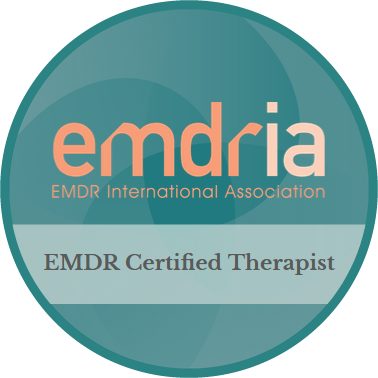EMDR Certified Therapist
Eye Movement Desensitization and Reprocessing (EMDR) therapy is an extensively researched, internationally recognized and practiced, effective psychotherapy method proven to help people of all ages recover from trauma and other distressing life experiences, including PTSD, anxiety, depression, domestic/intimate partner violence, sexual assault, sleep disturbance, grief and loss, specific phobias and more. These experiences can show up as intrusive thoughts, flashbacks, nightmares or other sleep disturbances, fear/anxiety, emotional numbness/reactivity, physical symptoms of pain or distress, and many more.
EMDR was originally developed by Dr. Francine Shapiro in 1987. In 2014, Deb Kennard founded Somatic and Attachment Focused EMDR (S.A.F.E.). I was certified in this model, which is a therapeutic approach that integrates EMDR with mindfulness, compassion, non-violence, somatic (physical) and emotional states, as well as attachment and relational patterns.
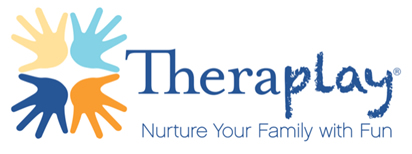
Certified Theraplay® Practitioner
Theraplay is a child and family therapy for building and enhancing attachment, self-esteem, trust in others, and joyful engagement. It is based on the natural patterns of playful, healthy interaction between parent and child and is personal, physical, multisensory and fun.
Theraplay interactions focus on four essential qualities found in parent-child relationships:
- Structure: The adult, the leader in the relationship, creates organization and predictability for the child which communicates safety
- Nurture: The adult provides caring that can calm and soothe the child in a manner that makes them feel good physically and emotionally
- Engagement: The adult is present in a manner that the child experiences being seen, heard, felt, and accepted
- Challenge: The adult supports the child in the acquisition and mastery of new skills, enhancing the child’s sense of competence and confidence
Theraplay sessions create an active, emotional connection between the child and parent or caregiver, resulting in a changed view of the self as worthy and lovable and of relationships as positive and rewarding. Sessions with the child and parent are recorded, and then feedback is given in parent-only sessions.
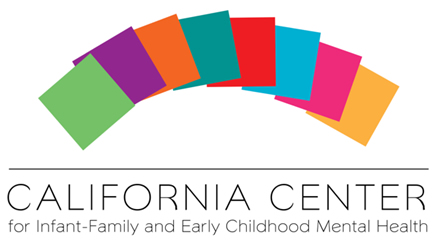
Infant-Family Early Childhood Mental Health Specialist and Reflective Practice Mentor
The endorsement process establishes a standard of excellence that professionals can use to document their knowledge and reflective practice facilitation experience and consumers can use as a guide to making decisions about providers. As an IFECMHS, I provide direct prenatal, infant-family, and early childhood mental health services within my scope of practice and professional ethics in the areas of promotion, preventive intervention, and treatment. These services are for children ages 0-5.
As an Endorsed Reflective Practice Mentor, I support the much-needed reflective practice for providers working with infants, toddlers, young children and their families, and completed an additional set of trainings and competencies focused on the reflective practice facilitation process. I can supervise, train, support and facilitate the learning of others who also want to do reflective practice work.
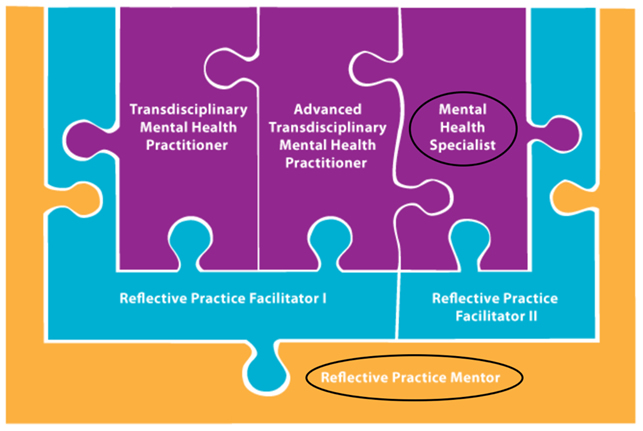
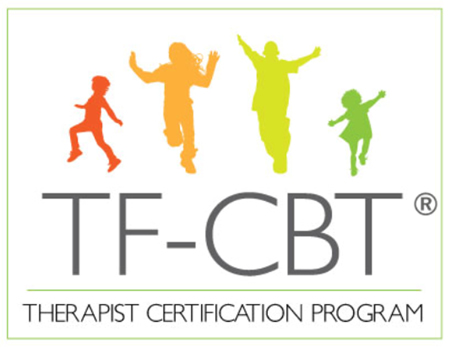
TF-CBT® Certified Therapist
Trauma Focused Cognitive Behavioral Therapy (TF-CBT) is an evidenced-based therapy shown to help children, teens, and their parents cope with trauma. It is normally provided to children between the ages of 3 and 18.
Contrary to popular myth, allowing a child to talk about their trauma will not make it worse or “re-traumatize” them. The trauma is there, and its effects are felt, whether they talk about it or not. Rather than hoping it goes away with time, TF-CBT gives a structured framework to gradually expose the child to talking about their trauma within a supportive therapeutic relationship and reintegrate it into their lives.
TF-CBT treatment includes the following education about trauma and its effects, parenting strategies for common behavior problems, relaxation training, learning about feelings and ways to express them, finding and changing thought patterns about self and the trauma that prevent healing, developing creative ways for children to talk about what happened in a developmentally appropriate manner, joint parent-child sessions to help facilitate talk about the trauma, and learning and practicing safety skills.
Parent participation in treatment increases the positive results for children. Caregivers are asked to practice and learn new ways to cope with challenging behaviors in their child, help their children to practice skills at home, support their children in the sharing and telling of their trauma, participate in therapy sessions as directed by the therapist.
Treatment is relatively short, around 16-25 sessions. Over 80 percent of children who have experienced a trauma and who receive TF-CBT will improve in 12-16 sessions.
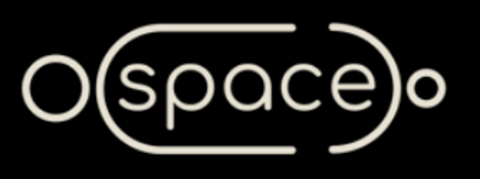
SPACE Provider
Supportive Parenting for Anxious Childhood Emotions (SPACE) is a parent-based treatment program for children and adolescents with anxiety, OCD, and related problems. Although only parents/caregivers participate in the sessions, children are the patients! The treatment focuses on changes that parents can make to their own behavior—they do not need to make their child change. Parents learn to respond more supportively to their anxious child and to reduce the accommodations they have been making to the child symptoms. When SPACE treatment is successful children feel less anxious and function better following treatment.
Some of the main anxiety problems treated with SPACE include:
- Separation anxiety
- Social anxiety
- Generalized anxiety
- Fears and phobias
- Panic disorder and Agoraphobia
- Selective mutism
- Obsessive-compulsive disorder
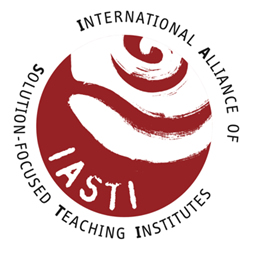
Certified Solution-Focused Practitioner
Solution Focused Brief Therapy, often referred to as “Solution-Focused Therapy,” is a type of talk therapy that focuses on what clients want to achieve through therapy rather than on analyzing the problem(s) that brought them to treatment. While the SFBT approach respects each client’s past and what brought the client to this point, it places the focus on what the client wants.
SFBT therapists help their clients to construct a concrete vision of a preferred future for themselves. In working toward this future, the problems and the past become more manageable. This approach postulates that no problem happens all the time. There are always times, even though they may be very brief, when the problem is absent or just a little better.
The Solution-Focused Brief Therapy therapist believes that these moments hold valuable answers and examines what is different on these occasions. By bringing these small successes to clients’ awareness and helping clients to repeat these successful things they do when the problem is not there or less severe, the therapist helps the client move toward the preferred future they have identified.
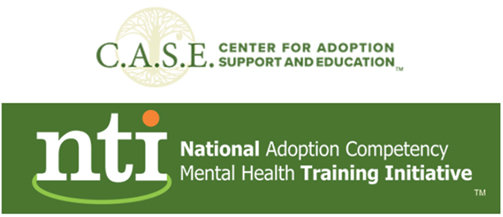
National Adoption Competency
I was a part of the pilot training program in 2018 in California to better address the mental health and developmental needs of children in foster, adoptive or guardianship families. This program went beyond the available training on trauma and focused on clinical practices to effectively address the core underlying issues of adoption, like attachment, grief/loss, and identity formation. As a result, I’m more able to effectively address the unmet needs of families moving toward or having achieved permanency through adoption, guardianship, kinship, or customary adoption.
How can I help?
Schedule your telehealth counseling session today.

